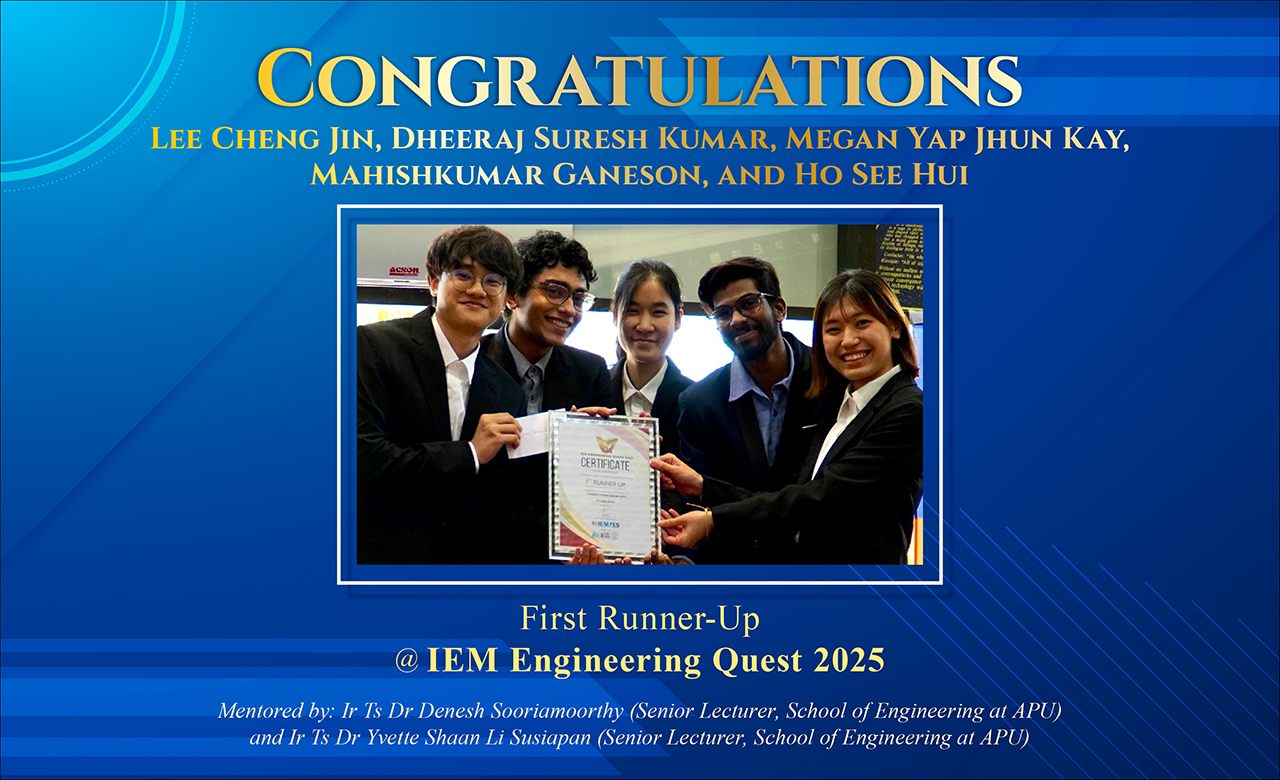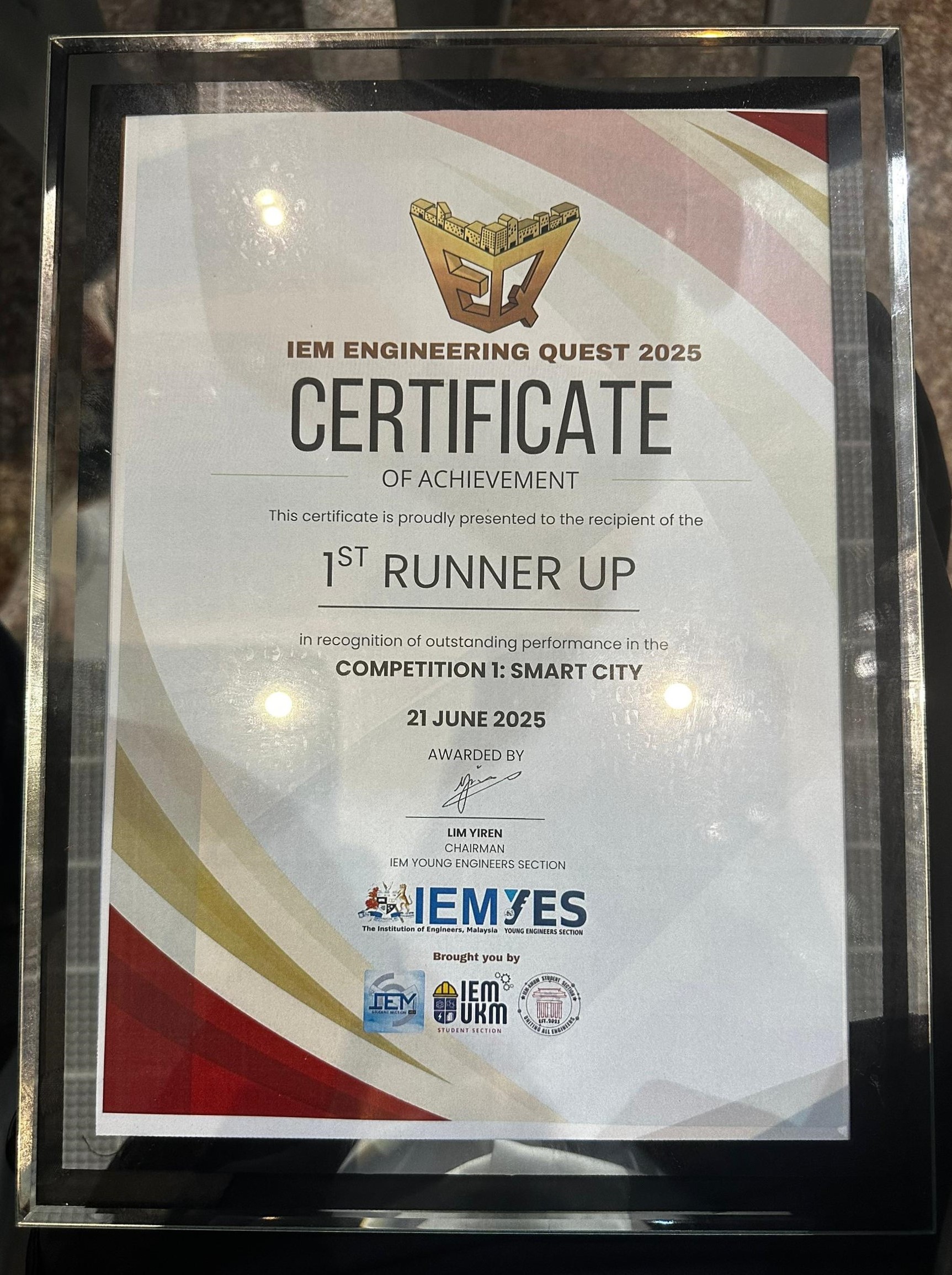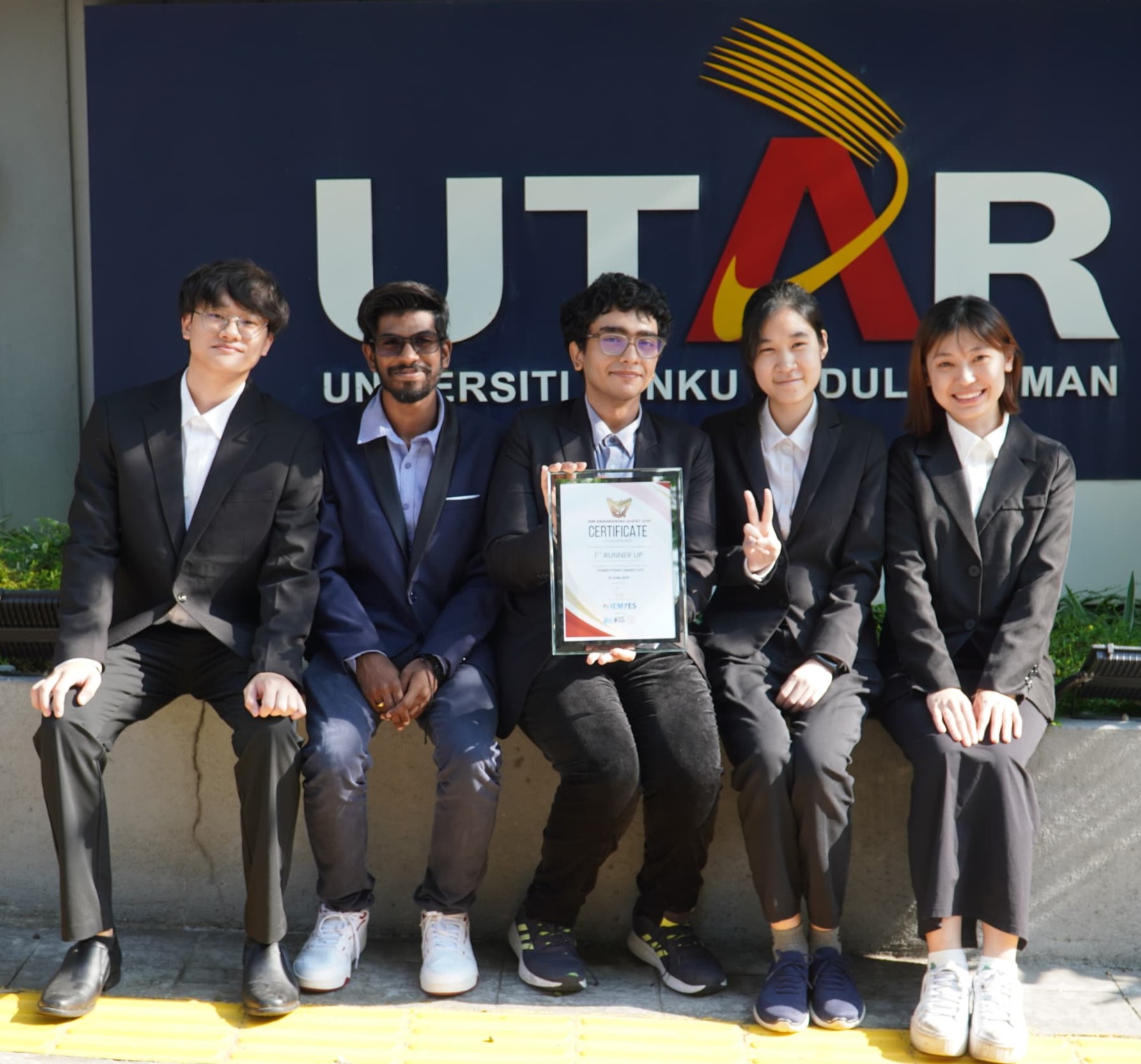
A team of five students from Asia Pacific University of Technology & Innovation (APU) secured the First Runner-Up title at the IEM Engineering Quest 2025, held on 21st June 2025.
Team members Lee Cheng Jin, Dheeraj Suresh Kumar, Megan Yap Jhun Kay, Mahishkumar Ganeson, and Ho See Hui represented APU in this research-intensive competition aimed at redefining sustainable urban environments.

This success was made possible through the mentorship of Ir Ts Dr Denesh Sooriamoorthy (Senior Lecturer, School of Engineering at APU) and Ir Ts Dr Yvette Shaan Li Susiapan (Senior Lecturer, School of Engineering at APU).
The competition was jointly organised by the Institution of Engineers Malaysia (IEM) Student Sections of Universiti Tunku Abdul Rahman (UTAR), Universiti Kebangsaan Malaysia (UKM), and Xiamen University Malaysia (XMUM), which brought together top engineering minds to explore the theme of “Smart Technology in achieving Zero Carbon City.”
Under the competition’s first category, participants were challenged to craft a technical report addressing sustainability in the urban retail sector, leveraging advanced technologies such as Internet of Things (IoT), artificial intelligence (AI), and renewable energy.
APU’s team proposed an innovative solution titled “NeuroToll: A Dynamic Pricing Model with an Open Toll System.”
Their project tackled carbon emissions by eliminating traditional toll booths and replacing them with a real-time, congestion-sensitive tolling system.
By dynamically adjusting pricing based on traffic density and zones, NeuroToll offers a smart alternative to reduce idle emissions, improve traffic flow, and promote green urban mobility.
Driving Innovation for Carbon-Neutral Cities

The team’s performance stood out among submissions from numerous universities nationwide, earning commendations for technical accuracy, creativity, and real-world applicability.
On top of that, their solution aligned strongly with Malaysia’s carbon neutrality goals and highlighted the integration of data-driven systems in sustainable urban design.
As Malaysia continues to explore smarter and more sustainable urban solutions, achievements like this highlight how APU students are contributing meaningfully through practical innovation, technical knowledge, and a strong sense of environmental responsibility.
News & Happening
Download e-Brochures
Intake Calendar
Want to know more ?
Let’s Connect